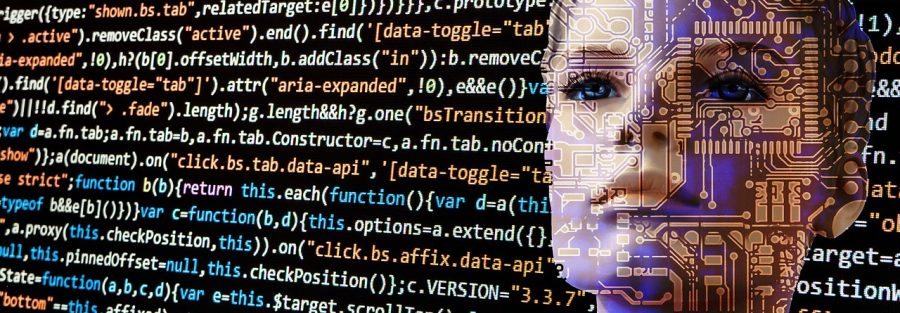Legal Interpreting: Bridging the Language Gap in the Justice System
In a diverse and multicultural society, language barriers can pose significant challenges within the justice system. For individuals who do not speak the dominant language of a country, understanding legal proceedings can be nearly impossible. This is where legal interpreting steps in, playing a crucial role in bridging the language gap and ensuring effective communication between limited English proficient individuals and the justice system.
Legal interpreting serves as a vital tool in promoting access to justice for all. By providing accurate interpretation services during court proceedings, legal interpreters enable individuals with limited English proficiency to fully understand their rights, participate in their own defense, and navigate the complex legal system. Moreover, they help create a level playing field, ensuring that language barriers do not become a hindrance to fair and equal treatment under the law. Without the assistance of qualified interpreters, the linguistic divide within the justice system would significantly impede the ability of non-English speakers to seek justice and protect their rights.
The Role of Legal Interpreters: Ensuring Access to Justice for All
In a diverse and multicultural society, access to justice is an essential right for all individuals. However, for those who do not understand the official language used in the courtroom, this right can be severely compromised. This is where legal interpreters play a crucial role in ensuring that everyone, regardless of their language proficiency, can fully participate in the judicial process.
Legal interpreters act as bridges between limited English proficient individuals and the justice system. Their primary responsibility is to accurately and impartially interpret spoken or written communication from one language to another. By providing this vital service, they ensure that language barriers are overcome, enabling clear and effective communication between all parties involved in legal proceedings. This, in turn, allows individuals to understand their rights, make informed decisions, and to fully engage in the legal process, promoting equal access to justice for all.
The Significance of Accurate Legal Interpretation in Court Proceedings
Accurate legal interpretation in court proceedings holds immense significance in ensuring equal access to justice for all individuals. In a diverse society, language barriers can become a major obstacle in the courtroom, hindering effective communication between parties involved. This is particularly critical when dealing with limited English proficient individuals, who may struggle to understand and express themselves in legal proceedings. When qualified legal interpreters are present, they act as essential conduits, bridging the language gap and facilitating smooth and accurate interactions between parties.
The role of a legal interpreter goes beyond mere translation; they are tasked with accurately conveying not only words but also the tone, nuances, and cultural contexts embedded within the conversations. A single misinterpretation or miscommunication can lead to grave consequences, potentially impacting the outcome of a trial, the rights of the parties involved, and the overall fairness of the judicial process. Thus, accurate legal interpretation plays an integral role in preserving due process and safeguarding the rights of individuals, regardless of language proficiency.
Overcoming Language Barriers: How Legal Interpreters Facilitate Effective Communication
Legal interpreters play a crucial role in facilitating effective communication in the justice system by bridging the language barriers that exist between individuals who do not speak the same language. In court proceedings, accurate and timely interpretation is essential for ensuring that all parties involved, including defendants, witnesses, and jurors, can fully comprehend and participate in the legal process. Without the assistance of qualified interpreters, these individuals would face significant challenges in understanding the complex legal terminology, procedures, and rights presented before them, potentially resulting in the denial of justice.
Moreover, legal interpreters contribute to the preservation of due process rights by enabling meaningful communication between limited English proficient individuals and the justice system. By ensuring that non-English speakers have access to qualified interpretation, legal interpreters help guarantee that defendants can fully understand the charges against them, effectively communicate with their legal representatives, and comprehend the potential consequences they may face. This is particularly important in criminal cases, where accurate interpretation is vital for defendants’ ability to present a strong defense and protect their constitutional rights. Without legal interpreters, individuals with limited English proficiency would be at a significant disadvantage in navigating the complexities of the justice system, thereby threatening the principle of equal access to justice for all.
Preserving Due Process: The Vital Role of Legal Interpreters in the Justice System
Legal interpreters play a vital role in preserving due process within the justice system. Their primary function is to bridge the language gap between non-English speakers and the courts, ensuring that individuals have equal access to justice. Without professional interpreters, limited English proficient individuals would face significant barriers, hindering their ability to understand and participate fully in legal proceedings.
One of the most crucial aspects of their role is accurate interpretation during court proceedings. Legal interpreters must accurately convey the meaning and nuances of spoken communication between parties, including judges, attorneys, and witnesses. By doing so, they facilitate effective communication and guarantee that all individuals involved can fully comprehend and express their rights and arguments. This accurate interpretation is essential to ensure fairness, as any errors or misinterpretations could jeopardize the integrity of the entire legal process.
Promoting Fairness and Equality: Legal Interpreting as a Fundamental Right
The principle of fairness and equality lies at the very heart of our justice system. It ensures that every individual, regardless of their background or circumstances, receives equal treatment under the law. However, to truly uphold this principle, effective communication is paramount. Without a common language, individuals with limited English proficiency can find themselves at a profound disadvantage in legal proceedings, unable to fully understand or express themselves. This is where legal interpreting emerges as a fundamental right, ensuring that language barriers do not hinder access to justice for all.
Legal interpreting serves as a vital bridge, connecting individuals who do not speak the language of the court with judges, lawyers, and other legal professionals. By enabling effective communication, interpreters empower individuals to fully comprehend their rights, provide accurate testimony, and understand the complex legal processes they are navigating. This not only promotes fairness by ensuring that meaningful interactions occur between all parties involved, but it also protects the integrity of the justice system itself. Without adequate interpretation, the rights of limited English proficient individuals may be compromised, leading to unequal treatment and diminishing the pursuit of justice and equality.
Ensuring Effective Communication: The Impact of Qualified Legal Interpreters
Effective communication is a fundamental aspect of ensuring access to justice for all individuals, regardless of their language proficiency. In the context of legal proceedings, where complex legal terminology and concepts are at play, the role of qualified legal interpreters becomes crucial. These professionals possess not only bilingual skills, but also a deep understanding of legal terminology, court etiquette, and cultural nuances. This expertise allows them to accurately convey information between parties, facilitating meaningful communication and ensuring that all individuals involved in the legal process can fully comprehend and participate in their proceedings.
Qualified legal interpreters have a significant impact on the overall fairness and integrity of the justice system. By bridging language gaps and effectively conveying information, they contribute to a more level playing field, where individuals who do not speak the predominant language of the court can actively participate in their own defense or claim. Without the assistance of interpreters, limited English proficient individuals may struggle to understand the charges or accusations against them, the legal options available, and the potential consequences they face. This can lead to serious injustices, infringements on due process and fair trials, and the denial of an individual’s fundamental rights.
Legal Interpreting: Safeguarding the Rights of Limited English Proficient Individuals
Language barriers can pose significant challenges for individuals who are limited in their English proficiency when navigating the justice system. Without the ability to understand and communicate effectively, these individuals may be denied their fundamental rights to due process and fair treatment. This is where legal interpreting plays a crucial role in safeguarding the rights of limited English proficient individuals.
Legal interpreters serve as vital communication bridges between non-English speaking individuals and the justice system. They ensure that these individuals fully understand their legal rights, the charges they may be facing, and the proceedings that take place in court. By accurately interpreting verbal and written information, legal interpreters facilitate effective communication between these individuals and all parties involved in the justice system. This, in turn, helps ensure that limited English proficient individuals have equal access to justice and can actively participate in their legal proceedings. Legal interpreting not only promotes fairness and equality but also preserves the integrity of the justice system itself.
The Challenges Faced by Legal Interpreters and the Need for Professional Standards
Legal interpreting is an intricate and demanding profession that comes with its fair share of challenges. One of the primary challenges faced by legal interpreters is the need for accuracy and precision in their work. Interpreters must effectively convey the meaning of spoken words from one language to another, ensuring that the interpretation reflects the intended message without any distortions or omissions. This requires a deep understanding of legal terminology and concepts in both languages, as well as the ability to think quickly and adapt to different communication styles.
Another significant challenge is the continuous pressure and high-stakes nature of legal proceedings. Legal interpreters often work in courtrooms or other legal settings, where the outcomes of cases can have life-altering consequences for individuals involved. This puts immense responsibility on interpreters to ensure that every word, nuance, and emotion is accurately conveyed between parties. It requires them to maintain composure and clarity even in tense situations, despite the potential for linguistic and cultural obstacles that may arise. As such, the need for professional standards in the field becomes essential to guarantee the highest level of competency, ethics, and performance from legal interpreters.
The Consequences of Inadequate Legal Interpreting in the Justice System
One of the most severe consequences of inadequate legal interpreting in the justice system is the infringement upon individuals’ fundamental rights. When limited English proficient individuals are unable to effectively communicate their thoughts, concerns, and testimonies due to language barriers, their access to justice is compromised. This can lead to misunderstandings, miscommunications, and ultimately, a denial of their rights to a fair trial and due process.
Moreover, inadequate legal interpreting can result in skewed or inaccurate translations, which can have far-reaching consequences. In court proceedings, even slight errors in interpretation can significantly impact the outcome of a case. Misinterpreted statements, miscommunications, or omissions in the interpretation can lead to faulty judgments, wrongful convictions, or even the release of guilty individuals due to procedural errors. The consequences of such mistakes can not only affect the individuals directly involved in the case but also society as a whole, eroding trust in the justice system and compromising the integrity of legal proceedings.



